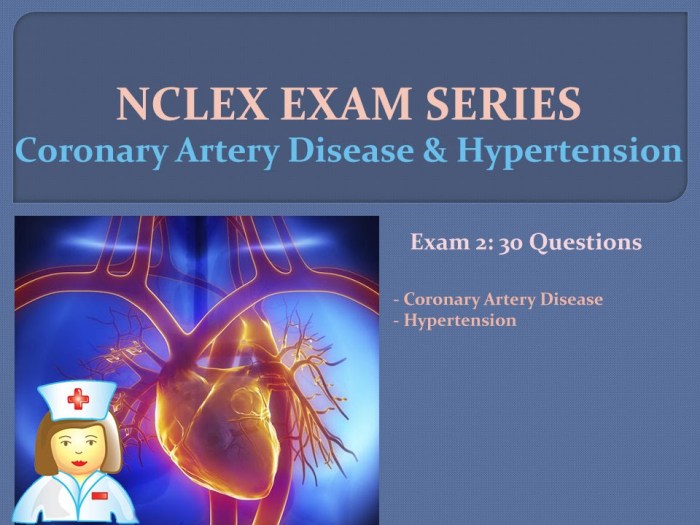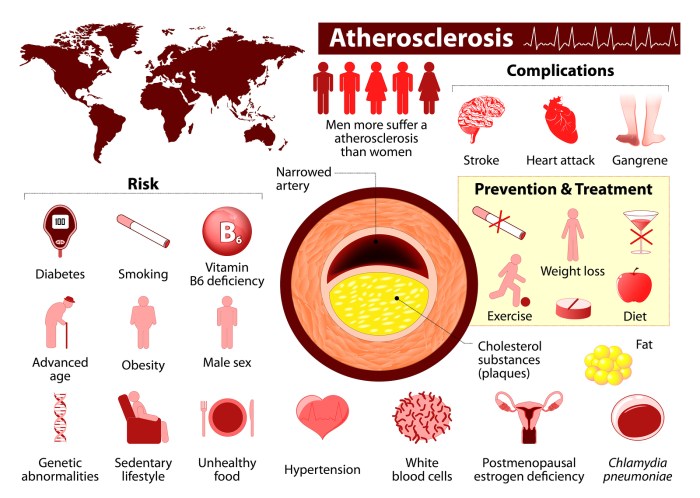NCLEX questions on coronary artery disease (CAD) are a crucial aspect of nursing examinations, testing candidates’ knowledge and critical thinking skills in managing this prevalent cardiovascular condition. Understanding the concepts, risk factors, and nursing interventions related to CAD is essential for success on the NCLEX.
This comprehensive guide delves into the intricacies of CAD, providing an in-depth exploration of its causes, symptoms, and management strategies. It also includes a collection of NCLEX-style questions and rationales to enhance your preparation and confidence.
Coronary Artery Disease (CAD)

CAD is a condition in which the arteries that supply blood to the heart become narrowed or blocked. This can lead to a heart attack, which occurs when the blood supply to the heart is cut off. CAD is the leading cause of death in the United States.
Causes of CAD, Nclex questions on coronary artery disease
The exact cause of CAD is unknown, but there are several risk factors that can increase your risk of developing the condition. These risk factors include:
- High blood pressure
- High cholesterol
- Diabetes
- Obesity
- Smoking
- Family history of CAD
Symptoms of CAD
The symptoms of CAD can vary depending on the severity of the condition. Some people with CAD may not have any symptoms, while others may experience:
- Chest pain or discomfort
- Shortness of breath
- Fatigue
- Lightheadedness or dizziness
- Pain in the neck, jaw, back, or arms
Risk Factors for CAD
The risk factors for CAD include:
- Age
- Sex
- Race
- Family history
- Medical conditions
- Lifestyle choices
Frequently Asked Questions: Nclex Questions On Coronary Artery Disease
What are the common causes of CAD?
CAD is primarily caused by atherosclerosis, a buildup of plaque in the arteries that supply blood to the heart.
What are the key nursing interventions for CAD patients?
Nursing interventions focus on lifestyle modifications, medication management, and symptom monitoring to prevent complications and promote patient well-being.
What are the potential complications of CAD?
CAD can lead to serious complications such as heart attack, stroke, and heart failure if left untreated or managed inadequately.



